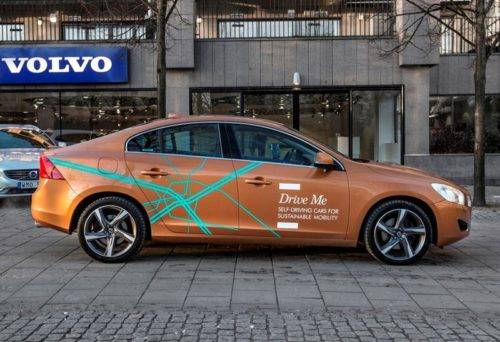Volvo and Autoliv will form a new partnership, called Zenunity, which aims to develop self-driving car software based on Nvidia’s Drive PX computing platform.
The goal is to have the software fully functioning inside of cars by 2021. Volvo will utilize the software in its own vehicles, while Autoliv will be able to sell to third-parties.
See Also: Volvo wants to automate your weekly garbage pickup
Volvo has already conducted self-driving tests in China, Sweden, and the United Kingdom.
The partnership adds more value to Nvidia’s Drive PX platform, which is seeing a lot of interest from automakers and tech companies. Drive PX uses artificial intelligence to control the vehicle, and most of the computing is done in-car, rather than sent to the cloud.
This type of in-car computing is becoming the more popular way to power self-driving. Waymo recently confirmed that it would look to bring most computing offline, only opening up Internet access for crash reports and important road information.
“The software that we’re doing with them will be in some cases unique to Volvo,” said Nvidia’s senior director of automotive, Danny Shapiro, to TechCrunch. “But Autoliv also has the rights to make the software available to other automakers. I think we’re starting to see, in the industry, these types of collaborations, and the opportunity to leverage from Nvidia a lot of this great work as well.”
Autoliv has decades of experience with auto safety, selling software and services directly to automakers. In the past few years, it has started to build driver assistance and other semi-autonomous systems for automakers.
Volvo and Autoliv have already partnered on a self-driving pilot program, called Drive Me. This appears to be a deeper agreement, showing both companies want to continue building together.


















